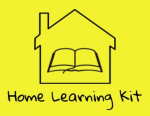Deschooling is an adjustment period that occurs when a child leaves a traditional school and begins homeschooling. It is characterized by the child adapting to new schooling norms, routines, and a different relationship with his or her parents. Let’s dig into what this looks like and how you can make it work in your household.
What is Deschooling?
When your child has been in a traditional classroom setting for a long period of time, they will develop a certain relationship with education and become comfortable with a particular routine. Many times, children will begin to dread school, either from a lack of support in the classroom or struggles fitting in socially. Additionally, a child can become very dependent on the fixed routines of a school set by teachers and bells. It might not seem like much to an adult, but it can be very tough on a child.
Deschooling describes the period of time where your child is adapting to life outside of the classroom. This can take anywhere from one to six months. The general rule of thumb is one month for each year your child spent in public school, up to six months. This doesn’t mean no education at all for the time (that would be crazy). Instead, this time will be used to find new norms, set new routines, explore, and play.
How Do You Deschool?
There isn’t one specific way to deschool, but here are some ideas you should consider to successfully help your child transition to homeschool.
Setting New Norms and Routines
Your child may have spent years getting up early, eating breakfast, packing up, and heading to school for seven or eight hours, five days a week. School is a set schedule. Teaching is often dictation from a teacher followed by working on a lesson or worksheet. But that’s not how you want your homeschool to function. A great benefit you have as a homeschool parent is making learning fun, interactive, and available anywhere. Will you start the day reading a story to your child during breakfast? Maybe you’ll do science lessons outside with plenty of extra time to run around and explore. How much screen time will you allow your child, whether your homeschool incorporates computers or not?
Avoid Teaching At Your Child
We started to touch on this above. There’s a pretty decent chance your child didn’t really like school that much. You need to help them rediscover the wonder of learning and the fun of exploration. What does this look like in practice?
- Read, read, read! About whatever your child is interested in. This is about finding fun in learning something, even if it isn’t a typical lesson.
- Go places! Visit parks, museums, beaches, forests, wherever. Learning can take place anywhere.
- Get messy! Play in the mud, fingerpaint, count water balloons, build marshmallow towers. Your child won’t even realize they’re learning.
- Exercise! Let your child run around and be crazy. Time they spend being active will foster their independent learning.
- Skip the textbooks for a while. Your child will fall back into the boredom of public school if you force a textbook on them.
Work Out Your New Relationship Together
There will be some growing pains in your parent-child relationship when deschooling. Your child isn’t used to spending all day with you, and their prior association between you and school is probably one where you’re pushing them on grades, homework, and extracurricular activities. Will this kind of attitude from you work when you’re responsible for teaching several hours a day, or will it wear on your child and stress them out?
Furthermore, you’re preparing to take on the role of teacher for your child. Does your child trust that you know what you’re doing? In my experience, some kids think their parents can’t possibly know certain things. Or maybe your child thinks you know everything and seeing you potentially struggle to adapt to teaching gives them doubts. Use the deschooling period to get more comfortable with being a teacher, and be honest with your child that you’re learning how homeschool works too.
What Resources Are There for Deschooling?
Depending on where you live, you may have access to some free resources that will help you as you deschool.
Library
Libraries these days have a lot more resources and activities than you may remember from when you were a kid. In addition to books and movies, here’s some other helpful items you may have access to at your library:
- Online reading and math lessons for children
- Online encyclopedias
- Newspapers
- Cooking Magazines
- Foreign Language Programs
- Music streaming services
- Book curation
- Book clubs
- Story time
- and more!
Many of these are good ways to keep education going as you transition to homeschool, but keep it fun and away from a stereotypical classroom environment.
Facebook Groups
Many cities and towns will have at least one Facebook Group for local homeschool families to interact. At minimum, they can act as a good support group for you when you need advice, but many do more. They may organize play dates, group lessons, events, and even field trips. Helping your child socialize, which may be the biggest challenge for them as they leave public school, can relieve a lot of stress on the whole family.
Wrapping Up
You might be eager to get started with your homeschool right away when you take your child out of public school. But don’t be afraid to take your time, let your child adjust, and figure out how you want to teach as well through deschooling.
If you’re reading this, you’re probably getting ready to start your homeschool journey. Part of that journey will be working through the legal requirements in your state. To help with that, I put together a state-by-state guide of the legal requirements to homeschool. It’s yours for free when you sign up for my newsletter. You’ll also get updates with all our new posts with helpful info like you found here.
If you have any questions or would like reach me, I’m always available on social media. Find me at the links below!
Frequently Asked Questions
Deschooling is an adjustment period that occurs when a child leaves a traditional school and begins homeschooling.
One to six months. Usually one month for each year your child spent in public school.
Unschooling is a teaching philosophy where children lead the lessons. Deschooling is an adjustment period when a child leaves a traditional school and begins homeschooling.

